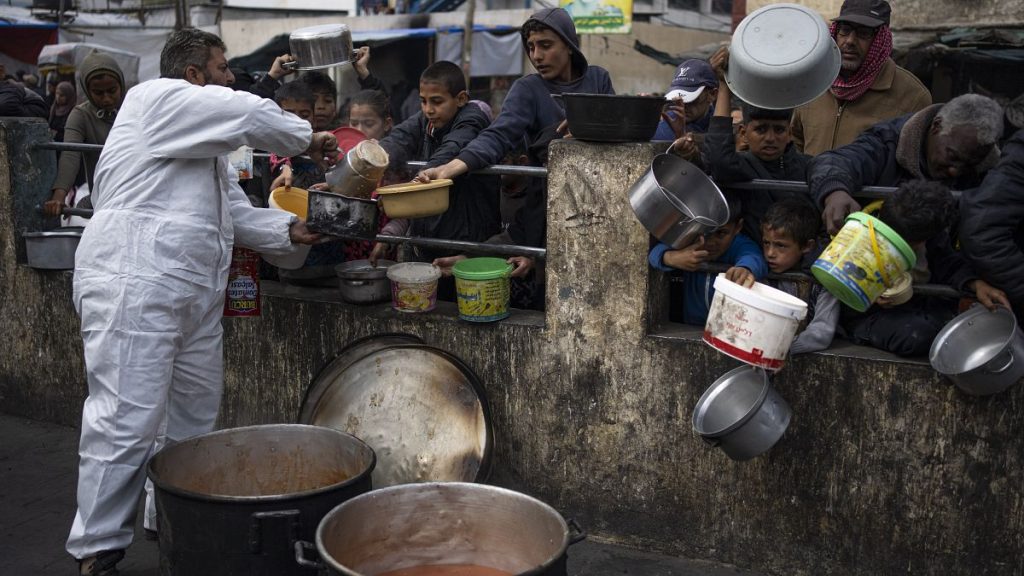The global food security landscape faces a looming crisis, driven by a confluence of factors including population growth, climate change, and existing widespread food insecurity. Currently, an estimated 700 million people grapple with food insecurity and poverty, a number projected to surge dramatically by mid-century if transformative actions are not taken. A chorus of 153 Nobel and World Food Prize laureates has issued an urgent call to action, emphasizing the need for a “moonshot” effort to revolutionize food production and distribution. Their open letter warns of a “vicious cycle of conflict and food insecurity” exacerbated by climate change, which threatens to diminish the productivity of staple crops even as the global population swells by an additional 1.5 billion people by 2050. The letter underscores the stark reality that current efforts are grossly insufficient to meet future food demands.
The looming crisis is multifaceted. Climate change is projected to inflict significant damage on agricultural productivity, particularly in regions heavily reliant on staple crops. Corn production in Africa, for example, is anticipated to decline, while soil degradation and water shortages are expected to plague numerous regions worldwide. These environmental challenges will compound the difficulties of feeding a burgeoning global population, creating a precarious situation that demands immediate and innovative solutions. The laureates’ letter highlights the urgent need for “transformational efforts” to avert this impending catastrophe.
Despite the grim projections, experts maintain a cautious optimism. They believe that the crisis can be averted through concerted global action and significant investment in research and development. The laureates’ letter advocates for a paradigm shift in agricultural practices and research priorities. Among the key recommendations are enhancing photosynthesis in essential crops like wheat and rice, which could significantly boost yields. Another critical area of focus is the development of crops less reliant on chemical fertilizers, which contribute to environmental degradation and pose long-term risks to soil health. Extending the shelf life of fruits and vegetables is also crucial to reducing food waste and improving access to nutritious food.
Brian Schmidt, a Nobel laureate in physics, emphasizes the urgency and feasibility of addressing this challenge. He describes it as a “destination with destiny,” a solvable problem that requires significant investment and global cooperation. Schmidt argues that the benefits of solving this crisis far outweigh the costs, creating a win-win scenario for all stakeholders. He advocates for governments, particularly in the US and Europe, to commit to tackling this issue, while also acknowledging the potential role of private organizations like the Gates Foundation in spearheading initial efforts and catalyzing broader action.
The call for increased funding is echoed by Cynthia Rosenzweig, a World Food Prize laureate and climate research scientist at NASA. Rosenzweig highlights the existing groundwork being laid by researchers, emphasizing that the necessary solutions are already being developed, albeit at a pace far too slow to address the impending crisis. She stresses that a “moonshot” approach is essential to accelerate the transition from laboratory research to widespread implementation in agricultural regions worldwide. This approach necessitates a significant influx of funding to scale up promising research projects and facilitate their practical application.
The laureates’ call to action is not merely a plea for more resources; it is a call for a fundamental shift in how we approach food production and distribution. It demands a global commitment to innovation, collaboration, and a recognition of the interconnectedness between food security, climate change, and global stability. The time for incremental progress is over; the urgency of the situation demands bold action, transformative solutions, and a concerted effort to build a food-secure future for all. This requires not only increased funding for research and development, but also improved infrastructure for food distribution, strategies to reduce food waste, and policies that support sustainable agricultural practices. The challenge is immense, but the potential rewards – a world free from hunger and the destabilizing effects of food insecurity – are immeasurable.














